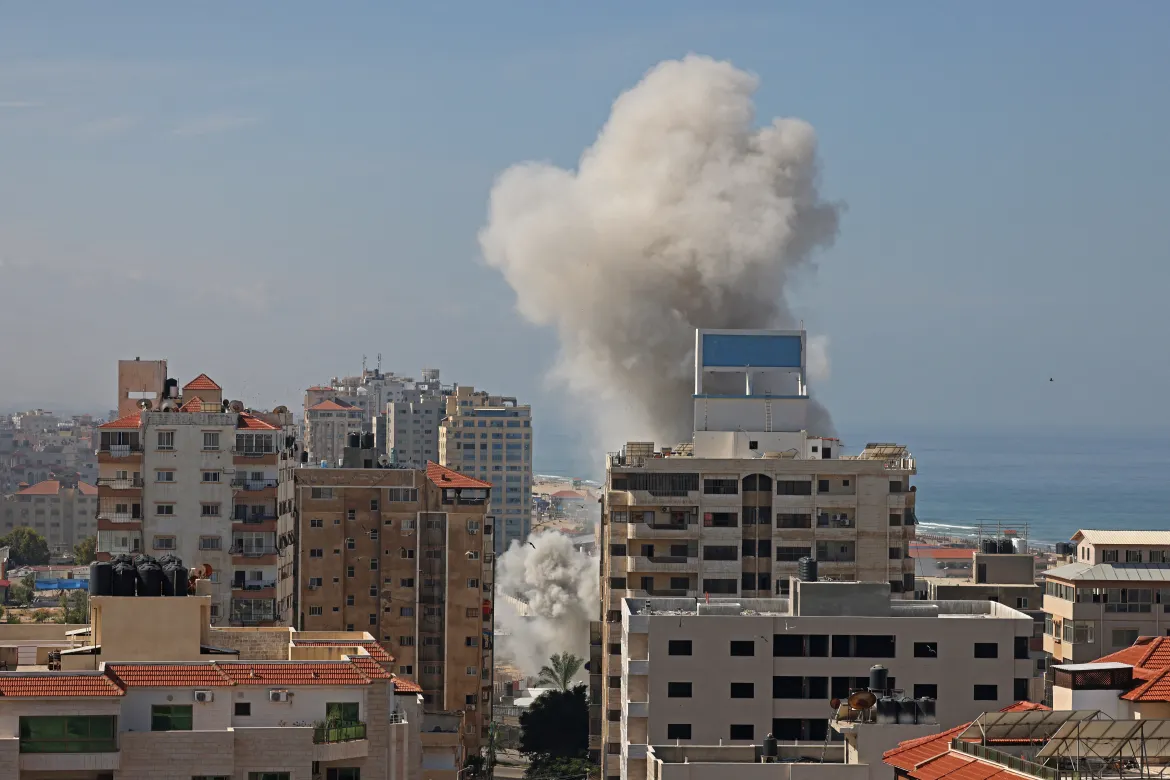Israel has received the bodies of four hostages taken alive during Hamas’ attack on October 7, 2023, marking the first time since last month’s ceasefire that the militant group has returned deceased captives. The bodies, according to Hamas, include Shiri Bibas, 33, and her two young sons, Kfir (2) and Ariel (5), as well as 84-year-old peace activist Oded Lifschitz.
Israeli authorities are conducting forensic examinations to confirm the identities. Prime Minister Benjamin Netanyahu expressed the nation’s deep sorrow, stating, “The heart of the entire nation is torn,” and described Hamas as “monsters” responsible for the tragedy.
Scenes of Grief and a Controversial Handover
The transfer of the bodies occurred in Khan Younis, southern Gaza, where four black coffins were laid out before crowds. In a somber yet orchestrated scene, a Red Cross official signed documents in the presence of armed Hamas fighters before the coffins were transported in Red Cross vehicles to Israeli forces.
Supporters and families of the victims have called on the public to line the route from the Gaza border to the Abu Kabir forensic institute in Jaffa, where post-mortems will be performed. The Red Cross had previously urged Hamas to ensure a dignified handover following widespread criticism of the group’s handling of hostage releases.
The Bibas Family: A Symbol of National Heartbreak
The fate of the Bibas family has gripped Israel for months. The news—though still awaiting official confirmation—of Shiri Bibas and her sons’ deaths has sparked national grief. In a statement, the Bibas family said they were “in turmoil,” adding, “Until we receive definitive confirmation, our journey is not over.”
Details surrounding their deaths remain unclear. Hamas had previously claimed in November 2023 that an Israeli airstrike killed the mother and her children, but no evidence was provided. Israeli officials at the time stated there was no confirmation of this claim.
The family was abducted from kibbutz Nir Oz on October 7, along with father Yarden Bibas, who was released on February 1 as part of a prisoner exchange.
Oded Lifschitz: A Peace Activist’s Tragic End
Oded Lifschitz, a retired journalist and veteran peace advocate, was also taken from Nir Oz along with his wife, Yocheved, who was released two weeks after the abduction. Lifschitz had been held by Islamic Jihad, a Palestinian militant group, since the October attack.
His body’s return has intensified the emotional toll on Israel, highlighting the complex and tragic nature of the hostage crisis.
Ceasefire Deal and Hostage Negotiations Continue
The return of the bodies was part of the ongoing ceasefire deal that began on January 19. Under the agreement, Hamas committed to releasing eight deceased hostages. So far, 28 hostages and over 1,000 Palestinian prisoners have been exchanged, with six more living hostages scheduled for release on Saturday.
In total, 66 hostages taken on October 7 remain in Gaza, along with three others abducted over a decade ago. Israeli officials estimate that about half of these hostages are still alive.
Efforts to move into the next phase of the ceasefire—aiming for the release of all living hostages and a potential end to the war—have stalled, with high-level negotiations yet to resume.
A Nation United in Grief and Uncertainty
The return of the hostages’ bodies has reignited intense emotions across Israel. Public mourning and vigils continue, reflecting the national pain and the enduring hope for the safe return of the remaining captives.
Prime Minister Netanyahu reiterated Israel’s commitment to bringing all hostages home, stating, “We will not rest until every one of our people returns.”






